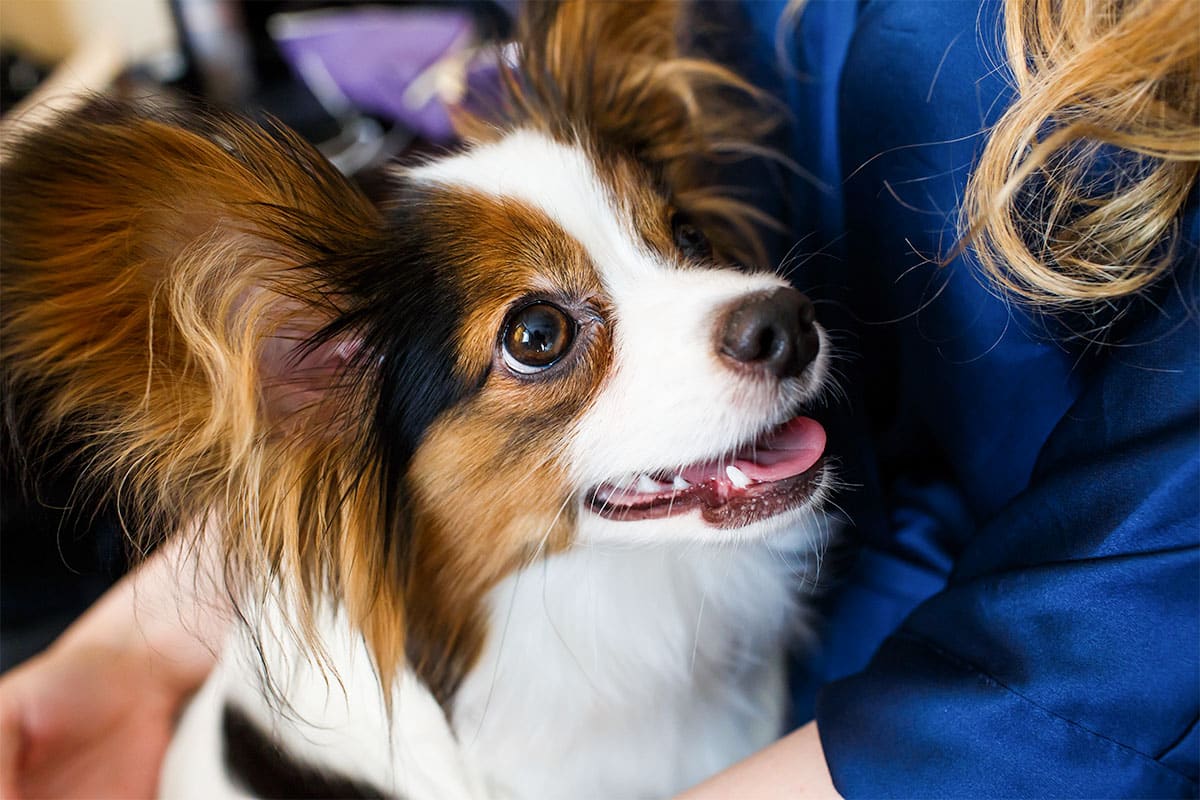Imagine you’re enjoying a creamy spoonful of cottage cheese when your loyal dog gives you those irresistible puppy eyes. It’s tempting to share a bite, but you pause and wonder: Can Dogs Eat Cottage Cheese without consequences? This humble dairy treat is packed with protein and calcium, making it sound like a healthy snack for your four-legged companion. Yet, not all dogs tolerate dairy the same way, and too much can lead to upset tummies or unwanted calories.
In this article, we’ll explore the ins and outs of feeding cottage cheese to your canine—covering benefits, possible risks, and simple serving tips. By the end, you’ll know exactly when a little cottage cheese can be a welcome treat and when it’s best to pass the spoon.
What Is Cottage Cheese?
Cottage cheese is a fresh dairy food made from cow’s milk. To make it, milk is warmed until it forms small lumps called curds. These soft curds sit in a mild, creamy liquid. Unlike aged cheeses, cottage cheese is eaten fresh and has a light, lumpy texture.
In terms of nutrition, cottage cheese packs protein, calcium, and phosphorus into a small serving. A half-cup of low-fat cottage cheese delivers about 12 grams of protein and important minerals for strong bones. Many brands also add live cultures, or probiotics, which support healthy digestion. On the flip side, regular cottage cheese can be high in fat and sodium. For dogs, it’s best to choose low-fat, low-sodium options to keep their tummies happy and healthy.
Can Dogs Eat Cottage Cheese?
Yes, dogs can eat cottage cheese in moderation, but there are a few things to keep in mind.
Cottage cheese can be a healthy treat for your dog when given in small amounts. It’s a good source of protein and calcium, which can be beneficial for your dog’s bones and muscles. However, some dogs are lactose intolerant, meaning they may have trouble digesting dairy products like cottage cheese. If your dog is lactose intolerant, they might experience stomach upset, bloating, or diarrhea.
To be safe, always introduce cottage cheese slowly and monitor for any signs of digestive issues. Choose plain, low-fat, and low-sodium varieties to avoid added ingredients that could be harmful to your dog. If in doubt, consult your veterinarian before adding it to your dog’s diet.
Benefits of Cottage Cheese for Dogs
A spoonful of cottage cheese can feel like a special snack for your canine companion. This mild dairy treat brings together key nutrients that support your dog’s health in simple, tasty bites.
First, cottage cheese delivers a hearty boost of high-quality protein. After a lively game of fetch or a brisk walk in the park, this protein helps rebuild tired muscles and keeps your pup strong and agile. It also supplies calcium, a vital mineral for sturdy bones and healthy teeth. Puppies growing into their big paws and senior dogs looking to stay spry both benefit from this extra support.
Beyond bones and muscles, many low-fat cottage cheeses contain live cultures, or probiotics, that help balance gut bacteria. These friendly microbes can soothe an upset stomach and promote smooth digestion. And when you choose a low-fat, low-sodium variety, cottage cheese becomes a low-calorie snack that fills your dog up without adding extra pounds. It’s a smart, satisfying way to manage weight while treating your furry friend—just serve in small amounts to keep tummies happy and tails wagging.
Potential Risks and Considerations When Giving Dogs Cottage Cheese
Cottage cheese can be a tasty treat for your dog, but it’s important to be aware of potential risks before adding it to their diet. Here are a few things to consider to ensure your furry friend stays healthy:
1. Lactose Intolerance
Just like some humans, dogs can be lactose intolerant. If your dog has trouble digesting dairy, feeding them cottage cheese might lead to stomach upset, bloating, or diarrhea. Keep an eye out for any signs of discomfort after they’ve had a small amount. If you notice any digestive issues, it’s best to avoid dairy altogether.
2. High Sodium Content
Cottage cheese can be high in salt, which isn’t ideal for dogs, especially in large amounts. Too much sodium can lead to dehydration, kidney problems, and other health concerns. If you decide to treat your dog to cottage cheese, make sure it’s the low-sodium variety and give it sparingly.
3. Pancreatitis Risk
Cottage cheese, especially the high-fat kind, can be problematic for dogs with certain health conditions, like pancreatitis. This condition, which involves inflammation of the pancreas, can be worsened by high-fat foods. If your dog has a history of pancreatitis or is prone to it, it’s better to skip cottage cheese and consult your vet for safer treat options.
4. Allergic Reactions
While rare, some dogs may have allergies to dairy products. If your dog starts showing signs like itching, swelling, or excessive licking after eating cottage cheese, it could be an allergic reaction. In this case, discontinue the treat immediately and consult your vet.
What to Do
As with any new food, it’s always a good idea to start with a small amount of cottage cheese to see how your dog reacts. If there are no negative symptoms, you can occasionally offer it as a treat. But remember, moderation is key, and it’s always a good idea to talk to your vet before introducing anything new into your dog’s diet.
In the end, cottage cheese can be a healthy addition to your dog’s diet if given in the right amounts. Just keep these potential risks in mind and always put your dog’s health first!
How to Safely Feed Cottage Cheese to Your Dog
Cottage cheese can be a great treat for your dog, but it’s important to feed it in a safe and healthy way. Here’s a simple guide on how to offer cottage cheese to your furry friend:
Portion Size: Keep it Small
When giving your dog cottage cheese, less is more. Start with a small portion to see how they handle it. A spoonful or two is plenty for a medium-sized dog. Remember, treats should only make up a small part of your dog’s diet, so don’t overdo it.
Frequency: Treat, Not a Daily Meal
Cottage cheese should be an occasional treat, not a daily snack. Limit it to a few times a week. This helps prevent any digestive issues and ensures your dog gets a balanced diet. If you notice your dog enjoying it without any problems, you can continue offering it occasionally.
Type: Choose Plain, Low-Fat, and Low-Sodium
Always choose plain cottage cheese that’s low in fat and sodium. Flavored varieties often contain added ingredients like salt, garlic, or onion, which aren’t safe for dogs. Low-fat options are easier on your dog’s stomach and better for their overall health.
Introduction: Gradually Add It to Their Diet
When introducing cottage cheese, do so slowly. Start with just a small amount and watch for any signs of digestive upset, like bloating or diarrhea. If your dog shows any negative reactions, stop giving them cottage cheese and consult your vet.
By following these simple guidelines, you can safely share cottage cheese with your dog as a tasty and occasional treat. As with any new food, moderation and careful observation are key to making sure your dog stays happy and healthy!
Can Puppies Eat Cottage Cheese?
Puppies are growing and developing fast, so it’s natural to want to treat them to something tasty like cottage cheese. But before you do, here’s what you need to know.
Caution: Introduce Slowly and Monitor for Intolerance
While cottage cheese can be a safe treat for puppies, it’s important to introduce it gradually. Start with just a small amount to see how your puppy reacts. Some puppies may have a sensitive stomach or be lactose intolerant, so keep an eye out for any signs of digestive upset, like diarrhea or bloating. If you notice any issues, it’s best to stop offering cottage cheese and try something else.
Consultation: Always Check with Your Veterinarian
Before adding cottage cheese or any new food to your puppy’s diet, it’s always a good idea to check in with your vet. They can give you the best advice based on your puppy’s specific breed, age, and health needs. Puppies have delicate tummies, and your vet can help guide you on what’s safe and what’s not.
In summary, while cottage cheese can be a nice occasional treat for your puppy, make sure to introduce it carefully and consult with your vet first. Taking these simple steps helps ensure your puppy stays happy, healthy, and safe as they grow!
What to Do If Your Dog Eats Too Much Cottage Cheese
Accidents happen, and sometimes dogs get a little too excited about a tasty treat like cottage cheese. If your dog eats too much, don’t panic—here’s what you can do:
Monitor Symptoms
Keep an eye on your dog for any signs that they’re feeling unwell. Some common symptoms of overindulging in dairy include vomiting, diarrhea, or bloating. If you notice any of these symptoms, it’s important to take action right away. In most cases, a small amount of upset stomach may pass, but always be vigilant.
Consult a Veterinarian
If your dog continues to show signs of discomfort or if the symptoms don’t improve after a few hours, it’s best to contact your veterinarian. They can offer advice on how to proceed and ensure your dog doesn’t have a more serious issue. It’s always better to be safe and get professional help if you’re unsure.
In the future, try to keep cottage cheese as an occasional treat and offer it in small, controlled amounts. If your dog does happen to overeat again, you’ll already know what steps to take. A little caution goes a long way in keeping your dog happy and healthy!
Conclusion
Before adding cottage cheese to your dog’s diet, it’s always a good idea to consult with your veterinarian. They can help you determine if it’s a good fit for your dog’s specific needs, especially if your dog has any dietary restrictions or health conditions. Your vet’s advice will ensure you’re making the best choices for your pet’s health.
Cottage cheese can be a healthy and tasty treat for your dog when fed in moderation. As long as it’s introduced gradually, and you choose plain, low-fat, and low-sodium options, it can be a great addition to your dog’s diet. Just remember, moderation is key, and always keep an eye on how your dog reacts to any new food. With the right care, cottage cheese can be a safe and enjoyable treat for your furry friend!
FAQS.
Can dogs eat cottage cheese?
Yes, dogs can eat cottage cheese in moderation. It’s a good source of protein and calcium, but be cautious if your dog is lactose intolerant. Start with small amounts and watch for any digestive issues.
Is cottage cheese safe for puppies?
Cottage cheese can be safe for puppies, but introduce it slowly. Puppies have sensitive tummies, so it’s important to monitor them for signs of intolerance like diarrhea or bloating. Always consult your vet before adding new foods.
How much cottage cheese can I give my dog?
Give your dog a small amount, like one or two teaspoons for small dogs or a tablespoon for larger dogs. Cottage cheese should be an occasional treat, not a regular part of their diet.
Can cottage cheese help my dog’s digestion?
Cottage cheese can be gentle on your dog’s stomach and may aid in digestion for some dogs. However, if your dog has a sensitive stomach or is lactose intolerant, avoid giving it to them.
Is cottage cheese good for dogs with allergies?
If your dog has dairy allergies or lactose intolerance, avoid cottage cheese. For dogs without these issues, it can be a healthy treat in moderation. Always monitor your dog’s reaction when trying new foods.



















 English (US) ·
English (US) ·